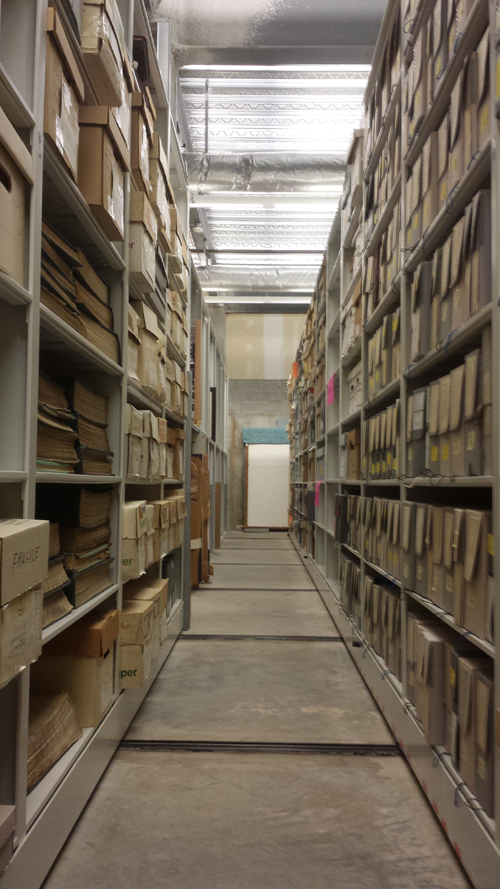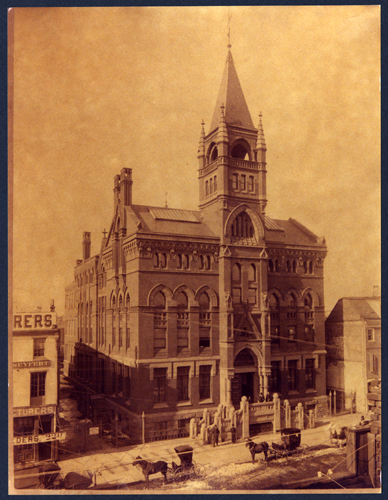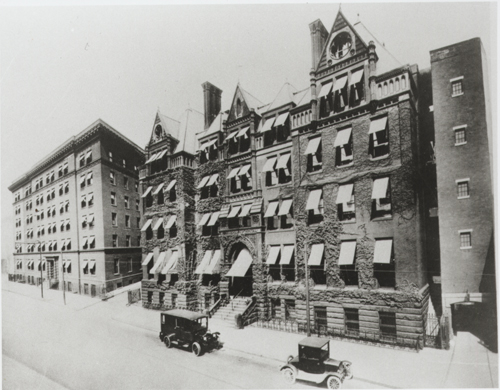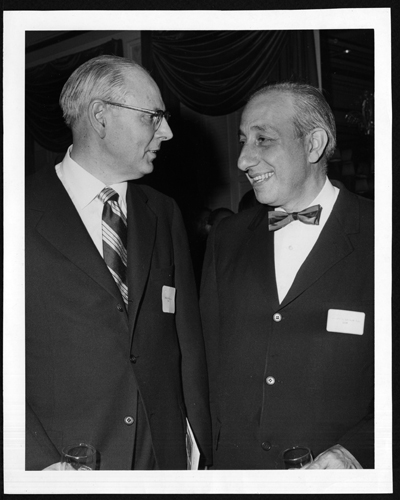PACSCL Hidden Collections comes to DUCOM
by Chrissie Perella

Hahnemann Medical College records
Funded through the Council of Library and Information Resources (CLIR) and the Andrew W. Mellon Foundations Grant, the Philadelphia Area Consortium of Special Collections (PACSCL) has begun its second venture into uncovering the "hidden collections" of Philadelphia area repositories. Here at the Legacy Center, our PACSCL processors will be delving into the records of Hahnemann Medical College, one of the predecessors of the Drexel College of Medicine.
The Homeopathic Medical College of Pennsylvania was founded in Philadelphia in 1848 by Constantine Hering, Jacob Jeanes, and Walter Williamson. Homeopathy was becoming a somewhat popular alternative to traditional medicine, and the school was one of the first homeopathic medical schools in the United States. The College continually faced financial problems, and in 1867, Hering resigned his position after additional conflicts about the pathology and diagnostics department, and opened a new school, the Hahnemann Medical College. The two colleges merged in 1871 as Hahnemann Medical College. The College continued to focus its education on homeopathy until the 1920s and 1930s, when it began teaching traditional medicine. In 1941, Hahnemann Medical College began admitting women.

Hahnemann Medical College, ca. 1890

Hahnemann Hospital and Nurses' Building, 15th Street, ca. 1910
In the 1960s, Hahnemann rid itself completely of its homeopathic past and focused on the mid-20th century medical practices prescribed by the American Medical Association and the Association of American Medical Colleges. The faculty organized and directed laboratory work and clinical research programs, and implemented the modern teaching methods of the second half of the 20th century. Hahnemann was re-inventing itself as a nationally known academic medical center with prominence in cardiac surgery and cardiology, oncology, transplantation, training of non-physician health professionals, community health and community mental health. In 1981, it became a university with four fully accredited schools: the School of Medicine, Graduate School, School of Allied Health Professions, and School of Continuing Education.
In 1995, Hahnemann University merged with the Medical College of Pennsylvania (formerly Woman's Medical College of Pennsylvania) under the Allegheny Health Education and Research Foundation. In 1998, with bankruptcy looming near for AHERF, Drexel University began operating the school as MCP Hahnemann University School of Medicine, and in 2002, it became the Drexel University College of Medicine.

Drs. Charles Bailey and Joseph DiPalma
The Legacy Center's Hahnemann Medical College records include the papers from former deans, faculty members, and academic departments. To learn more about the Hidden Collections project, visit "About the Project". Meet our hard-working processors, Steve and Annalise, on the "Phase II Project document" section.
Interested in reading more about Hahnemann Medical College? Check out An Alternative Path by Naomi Rogers.